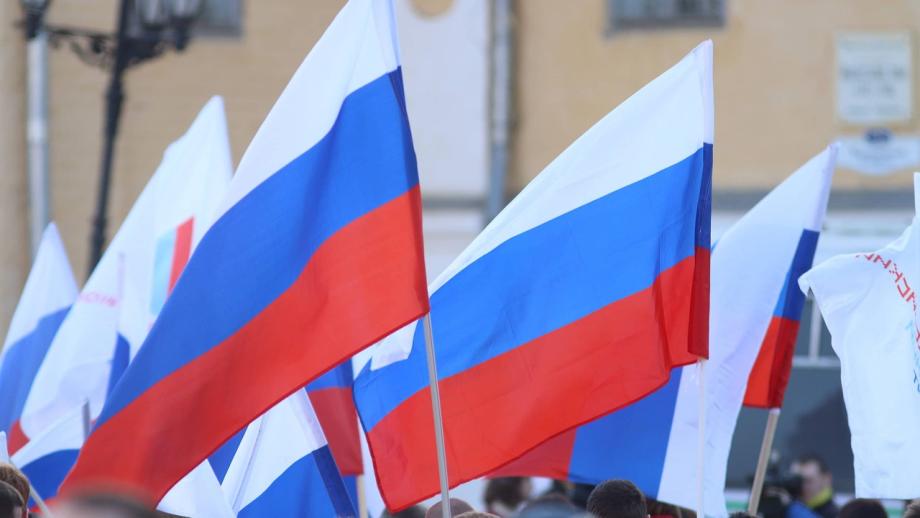Opinion: Five truths about the conflict between Putin and the West

Whatever happens in the upcoming days in and around Ukraine, it is essential to keep the big picture in mind: the West has been engaged in a protracted confrontation with Russia under Putin for several years (and probably will be for the foreseeable future). This conflict is characterized by multiple elements that make it unique in recent history - these need to be spelled out to provide NATO and the EU a compass to guide them through the coming years.
1. This conflict is essentially zero-sum
Let’s spell it out: At this stage, gains for Putin represent a loss for freedom (for both the West and the Russian people) and vice versa. The time when we could hope for, and work towards, win-win solutions with Vladimir Putin’s kleptocratic dictatorship is long past. Negotiations in good faith may still be possible for verifiable arms control agreements that use painstakingly clear language, but not for geopolitical talks like Minsk II. This may be difficult to swallow for societies that have come to embrace negotiation, compromise and conflict resolution as tried and true strategies. While these pragmatic approaches have proven successful, for example, in advancing European integration, they are utterly useless when dealing with an authoritarian delinquent in the mold of Putin. While dialogue is still necessary, deterrence will now be the backbone of our response. And deterrence works because Putin is not suicidal.
2. The conflict will probably be a prolonged affair that can only end when Putin leaves the Kremlin
Any attempt to persuade Putin to return to a more cooperative approach will prove futile. He is simply too far removed at this point. This may, again, be tough news to hear for governments preferring quick results that they can promote to voters at the next election. Putin’s external aggression and domestic repression are two sides of the same coin. At some point, however, his reign will come to an end. But this will only happen, in all likelihood, through either his death or violent removal from power. While we don’t know when this will happen, Putin may be digging his own grave in Ukraine. The world needs to be ready for this moment regardless of when it occurs. A peaceful transition is unlikely given that Putin’s only guarantee to stay out of prison requires that he maintain complete control. We can also assume that Russia will be in a grim state by that point. Whoever follows will be provided considerable incentive to differ themselves substantially from the Putin era in both foreign and domestic policies. There is no guarantee of change, but a post-Putin Russia could be democratic and more cooperative. What is certain, however, is that nothing will change for the better under Putin.
3. Putin’s problem with Ukraine is not NATO, but democracy vs. empire
Forget talk about Russian ‘fears of encirclement’, ‘historical traumas’ and the resulting ‘need for strategic depth’ (= buffer zones all around). Kremlin propagandists and their ‘versteher’ in the West may keep repeating this. But take one look at a world map – a comparison (even in peacetime) between troop and gear deployment numbers of NATO’s enhanced forward presence and Russia should be enough to dispel these arguments. What really irks Putin is the success of Ukrainian democracy, even if slow and tepid, despite his aggression since 2014. Precisely because he denies Ukrainians the right to call themselves a nation, he is afraid that a successful Ukrainian democracy could rub off on Russians themselves and make them try out their own color revolution – a Russian Euromaidan. That is his worst nightmare, and incidentally also the reason he has become the lifeline for the brutal regime of Lukashenka in Belarus. As Zbigniew Brzezinski once said, Russia can be either an empire or a democracy but not both. That is why it is so important to put democracy at the heart of the West’s Russian strategy.
4. This conflict is part of an overarching global confrontation between democracy and authoritarianism
Global authoritarianism (or ‘Autocracy Inc.’ as Anne Applebaum calls it) is a network of regimes connected not by a positive ideology but rather the will to stay in power as long as possible and the rejection of liberal democracy. They help each other through financial support, propaganda, weapons, and ‘regime security technology. As demonstrated by Ukraine (towards Russia) or Taiwan (towards China under the Communist Party), democracies represent an existential threat to the new authoritarians through their mere existence: they are living proof of the humane alternative to dictatorship. That is why authoritarians seek to bully, destabilize and even crush democracies by all available means. Whether democratic Ukraine survives the Kremlin’s unprecedented aggression is crucial in this global struggle, underscoring why it is vitally important we get this right.
5. Freedom can prevail but only if the West stays united
There will probably not be any single magic moment when autocracy collapses similar to the fall of communism after the Berlin Wall came down in 1989. But it can wither away if the West manages to reverse current trends. In other words, NATO and the EU, together with democratic allies around the world, need to stay strong and united, rely more on deterrence and assist Ukraine to remain free. Democracy, undoubtedly, faces its own internal challenges - Donald Trump and Viktor Orbán are notable indicators of these crosscurrents. But if liberal democrats stick together and help one another both globally and domestically, we shall overcome.
